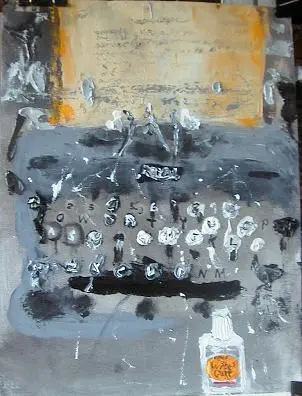Monday Movies Scares Me; Life Means Nothing to Him.
The European strain of leftist terrorism in the 1970’s is fundamentally mysterious to me. It intersects with the Israeli-Palestinian conflict, the Cold War, the U.S. anti-war movement and the global anti-imperial struggle, but feels necessary to understanding none of those. I didn’t really know anything about it until I saw Gerhard Richter’s haunting paintings of the Baader-Meinhof prisoners dead in their cells at Stammheim, and that made me eager to see The Baader-Meinhof Complex (previously Mondayed here) during its brief theatrical run. It still feels fundamentally foreign to me — there’s a level on which my cultural references contain the Weather Underground but not the Red Army Faction.
Carlos the Jackal was another major figure of that era, and Olivier Assayas’s Carlos (good Flash site here), originally directed for television, works best as a TV-scaled intimate portrait of him. In its full length, it runs almost six hours over three episodes, and Edgar Ramirez as Carlos (no relation) is on screen for almost all of it, from magnetic youth to fat, grey decline. Its first one hundred sixty minutes fly by, as Carlos establishes himself as a capable military operative despite a number of operational hiccups. He has a serene sense of himself as an ideological soldier, plainly informing a Saudi oil minister that though he will kill him, he knows that he won’t take it personally, because they are all players in a great game. In that fashion, Carlos likes to tell people who they are to him or to the world — he only reads the rules off the back of the box top. A flicker of doubt may flash across his face as a body falls by his hand, but he will quickly regain his composure. He likes women, of course, almond-eyed brunettes mostly, and the parade of sultry, not-too-Hollywood beauties gives the beginning a nice Jet Age of Terror erotic frisson.
At the midpoint of the second episode, an operation concludes as Carlos leaves a runway via motorcade, window down for the press photographers’ benefit. The rock music kicks in as the flashbulbs pop: Carlos is a celebrity. Unfortunately, the film stays in its intimate-portrait mode, leaving only a hint of how, with his fame, Carlos has begun to simultaneously terrorize and tantalize the continent. The spectacular operations go by the wayside as Carlos sets about running a weapons network across Europe. We never see any of his customers’ carnage. The times pass him by; it’s possible to feel a little sorry for him as the Berlin Wall tumbles, especially when we know that an operation far more spectacular than anything he ever imagined looms on the horizon, just around the millennial corner.
This is a chronicle of his rise and fall, but his fall includes no Tony Montana binges, and the filmmaking shows the same exhaustion as his career. Scenes fade out abruptly over and over, as if Assayas has given up on pacing his story much as Carlos will clearly never again conduct a major attack. When I saw The Aviator, I developed a rule of thumb for biopics: tell the story of how the world changed. At this, Carlos fails. The Baader-Meinhof Complex was more successful — it suggested that the convulsions of the militants were an awakening to the incomplete reconciliation of Nuremberg, that the dawn of liberal Europe depended on the repression of ongoing nightmares.
Having buckled in Saturday night and given it a go, with Thai delivery and pee breaks at the end of each episode, I would give this qualified endorsement: see the first half of the uncut version. Stop at 0:57 of episode two. It won’t feel exactly like an ending, but it will feel good.
After a musical break, two more.
